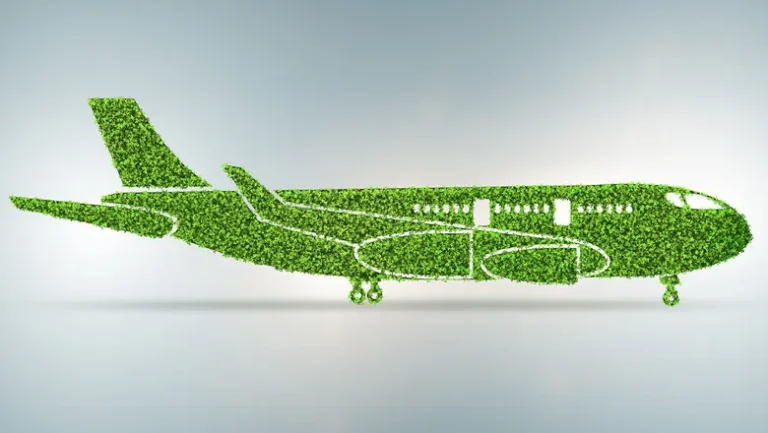ICAO’s adoption of the net-zero 2050 goal followed an identical commitment made by IATA last October. Photo Credit: Elnur/Shutterstock
The aviation arm of the United Nations has adopted a goal of net-zero carbon emissions for the industry by 2050.
The 193-nation International Civil Aviation Organization (ICAO) also agreed to revise the global airline industry carbon-offset scheme, known as Corsia, in a way that will increase the quantity of offsets that airlines will have to purchase.
Both agreements came Friday morning as ICAO wound down its triennial General Assembly, which has taken place in Montreal over the past two weeks.
Speaking shortly after the assembly adopted the long-term net-zero goal, ICAO secretary general Juan Carlos Salazar described it as, “truly a moment of joy and a moment of commitment.”
“We want to assure the assembly of the renewed energy that this organization will have,” Salazar.
ICAO’s adoption of the net-zero 2050 goal followed an identical commitment made by IATA in October of last year and more broadly aligns the organization with the climate commitments of the landmark 2015 Paris Accord, in which the United Nations established a goal of global net emissions by mid-century.
The change to Corsia was more controversial. Under its provisions, airlines will have to offset international flight emissions in excess of 85% of their 2019 emissions level. That will lead to larger offset obligations than requirements entering the conference, which only called for offset purchases once emissions reach the full 2019 output.
Still, the 85% threshold is below what the threshold would have been under Corsia’s original provisions in 2016, which were to require carriers to offset any emissions above their average output for 2019 and 2020. That 2016 language was changed as result of the pandemic, which caused emissions from 2020 to be far below what had been expected when Corsia passed.
Countries whose airlines undertake approximately three-quarters of cross-border flying, including the U.S., are participating in the pilot period of Corsia, which began in 2021. A three-year voluntary phase of Corsia is set to last from 2024 to 2026. From 2027 until the planned sunset of the scheme in 2035, participation in Corsia is to be mandatory for countries worldwide.
Views on how to handle the offset baseline had been split entering the conference, with some countries, including Brazil, India and Egypt, wanting to maintain 100% of 2019 baseline, while others, most notably the EU nations, wanted to revert to the 2019-2020 average.
The threshold of 85% of 2019 emissions emerged as a compromise solution.
IATA, which heading into the assembly had supported staying with the 2019 baseline, tacitly accepted the compromise over the course of the assembly. On Friday, the trade group’s secretary general Willie Walsh said the ICAO Assembly agreement strengthens Corsia. But he also addressed IATA’s concerns that some nations or regions will independently impose larger offsetting requirements on international flights that touch their territories, as the EU considered doing this spring and summer.
“States must now honor, support and defend Corsia against any proliferation of economic measures,” Walsh said in a prepared remark. “These will only undermine Corsia and the collective effort to decarbonize aviation.”


